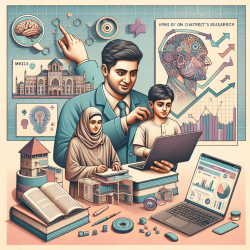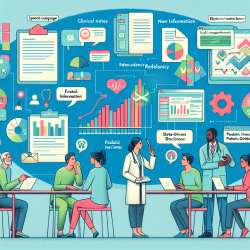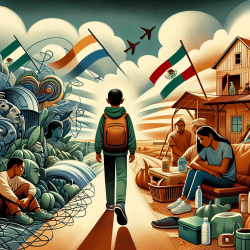As a Special Education Director, the challenges of ensuring legal compliance, addressing therapist staffing shortages, and providing effective leadership are ever-present. Drawing insights from diverse fields can offer innovative solutions to these challenges. The research article "Climate policy conflict in the U.S. states: a critical review and way forward" provides valuable lessons that can be applied within the realm of special education.
Understanding Obstacles and Solutions
The article highlights several obstacles to robust climate policy at the state level, such as governance issues, media influence, industry opposition, and fragmented coalitions. These challenges resonate with those faced in special education. For instance, navigating political structures and interest groups is crucial in both fields. The research suggests strategies like political engagement and collaboration with local governments to overcome these obstacles.
Applying Political Strategies
In special education, political advocacy is vital for securing resources and support. Engaging in both primary and general elections can help elevate leaders who prioritize education policies. Similarly, fostering relationships with local governments can lead to innovative solutions and resource sharing.
Leveraging Media Influence
The role of media in shaping public opinion is significant in both climate policy and special education. Advocating for increased media coverage of special education needs can raise awareness and support for necessary reforms. Tailoring messages to specific audiences can enhance engagement and drive policy change.
Collaboration and Coalition Building
The research underscores the importance of collaboration among diverse stakeholders. In special education, building coalitions with parents, educators, therapists, and policymakers can lead to more comprehensive solutions. Collaborative efforts can address staffing shortages by pooling resources and expertise across districts.
Innovative Local Solutions
Local governments play a pivotal role in implementing climate policies. Similarly, local educational agencies can drive innovation by adopting new technologies like online therapy services provided by companies such as TinyEYE. These services can help mitigate staffing shortages by offering flexible solutions that reach more students.
Encouraging Further Research
The interdisciplinary approach of integrating climate policy insights into special education highlights the potential for further research. Exploring how other fields address similar challenges can provide fresh perspectives and strategies for overcoming obstacles in educational settings.
To read the original research paper, please follow this link: Climate policy conflict in the U.S. states: a critical review and way forward.










